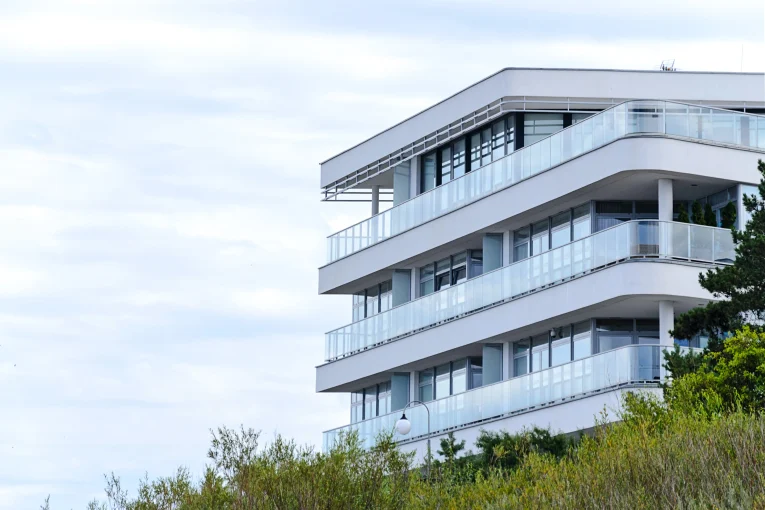6 Investment Property Financing Options
When it comes to financing rental properties, you aren’t just limited to traditional mortgages. Below are six different financing options that may be available to you to finance your investment property.
1. Fix and Flip Loans
Fix and flip loans are short-term loans (usually six months to three years), with a higher interest rate than a conventional mortgage loan that real estate investors can use to cover the upfront costs that come with buying and renovating a real estate investment property.
This type of loan is a good option for borrowers who’re confident they can repay the loan in a short time period of six to 36 months. A fix and flip loan is a great option for those who need to finance not just the purchase of a home, but the renovations required to turn a profit on the flip.
Investment Property Loan Requirements:
- Bank statements confirming you can finance down payment and closing costs
- Purchase contract
- List of past fix and flip projects
- An executed sales contract for the property
2. Hard Money Loans
Hard money loans are used to finance real estate purchases and are secured with property as collateral for the loan. You generally won’t find these types of loans through banks and will need to work with a non-bank lender. Borrowers choose hard money loans because private capital lenders can offer loans for opportunities that banks can’t fund, with speed and flexibility that banks can’t offer.
Hard money loans are short-term financing options that are a good fit for anyone who has a decent down payment towards their purchase.
Investment Property Loan Requirements:
- Down payment or equity in the property to use as collateral
- Cash reserves to cover holding costs and monthly loan payments
- Experience in the real estate industry
3. Home Equity Loans
You secure home equity loans with the equity you already have in a property and require repaying the loan with equal monthly payments over a fixed term (similar to a mortgage loan). Typically, the amount you’re allowed to borrow with a home equity loan faces a limit of 85% of your home’s equity.
Home equity loans are typically attached to a borrower’s primary residence. Tapping into these types of loans are certainly an option to provide for a down payment on an investment property loan, but real estate investors won’t be able to use this option for more than one or two deals (depending on how much equity in their home they have).
Investment Property Loan Requirements:
- Equity in your home (ideally 20% of the home’s value)
- Verifiable income history for the past two years or more
- A credit score greater than 600
4. Conventional Mortgages
Conventional Mortgages are typically used for owner-occupied properties (primary residences). Real estate investors typically don’t use these loans to fund their deals. Conventional mortgages are available through lenders like banks, credit unions, and mortgage companies. Conventional mortgages generally come with a fixed interest rate that doesn’t change throughout the life of the loan, although some may come with an adjustable interest rate.
Conventional mortgages are a great fit for those with good credit scores and stable employment. If you have a low credit score you may find it hard to qualify for a conventional mortgage.
Investment Property Loan Requirements:
- Proof of income and assets
- Employment verification
- Identification documentation
5. Peer-to-Peer Lending
Peer-to-peer (P2P) lending allows individuals to get loans from other individuals instead of working with financial institutions. While P2P lending is a newer financing option, which originated in 2005, today there are many options for P2P lending so borrowers can connect with potential lenders.
P2P loans have limitations on the amount of a loan that can be provided to borrowers. These are typically unsecured loans and aren’t suitable if the borrower needs to purchase property and secure renovation funds.
P2P lending is an option for those who can’t qualify for more traditional bank loans because of a low credit score or short credit history. Oftentimes, P2P lending has more favorable interest rates than loans designed for borrowers with low credit scores. Because P2P loans have fewer barriers to entry, they can help newer investors secure funds.
Investment Property Loan Requirements:
- Pre-qualification screening
- Some marketplaces have credit score requirements
6. Cash-out Refinance
Cash-out refinancing is a process that replaces a home loan with a new mortgage so the borrower can access the equity they’ve built in a property. Refinancing a property gives the borrower the difference between their current mortgage and the new one in cash which they can use for any type of purchase, like financing a rental property.
The interest rates for cash-out refinancing are generally lower than investment rental property mortgage rates. This makes a cash-out refinance an attractive borrowing option to finance rental property for new investors who have equity in an existing home and are investing in a single property deal.
While real estate professionals will typically look at all options to fund their deals, this option will likely be only feasible if there is enough equity in the home being cashed out. A cash-out refinance won’t cut it if the real estate investor has multiple deals that need funding.
Investment Property Loan Requirements:
- At least 20% equity in your home
- A new home appraisal
- A credit score of 620 or more
- Debt–to–income ratio of 43% or less (including the new loan)
- Loan–to–value ratio of 80% or less
- Income and employment verification
How To Qualify for an Investment Property Loan
All lenders will have their own unique set of lending qualifications and application processes, but here’s what you can do to strengthen your eligibility for most lenders.
- Showcase your real estate experience. Some lenders will want to know if you have experience in the industry and a history of successfully renting out properties.
- Gather proof of qualifying income. Have all of the necessary documentation prepared so lenders can process your application quickly.
- Make sure the property is ready to rent. The closer you are to making money on your rental property, the more confident lenders will feel working with you.
- Make a large down payment. The larger your investment property down payment is, the less you need to borrow, which is a signal to lenders that you’re a low-risk borrower.
Mortgage on Investment Property vs. Conventional Home Loans
When you apply for a mortgage, the type of property you plan to purchase will impact the interest rate you receive and the lender requirements to qualify for the loan.
Financing Rental Property | Financing Conventional Mortgages |
|
|
|
|
|
|
Rental Property Down Payment Requirements
While you can put as little as 3% down for a conventional mortgage, if you’re a first-time home buyer, the minimum down payment for an investment property is usually at least 20% for a one-unit property.
If you put down less than 20%, you won’t qualify. For a two to four-unit investment property, you’ll need to make a down payment of 25% – the exception being, if you plan to live in one of the units and qualify for an FHA loan that requires as little as 3.5% down.
Interest Rates for Investment Properties
Usually, interest rates for investment properties are about 0.5% to 0.75% higher than the rates you get to finance a primary residence. In 2021, you’re likely to come across an APR of 3.375% for a primary residence and an APR of 3.875% to 4.125% for an investment property.
These types of rates are available to “prime” borrowers, who have credit scores of at least 740 and can make a 30% down payment.
Now that you know how to finance a rental property, it’s time to evaluate your borrowing options. The best way to finance a rental property will depend on your unique financial situation, credit history, and borrowing preferences. Whatever path you choose, it’s important to shop around for a loan to make sure you gain access to the best interest rates and terms.
Ready for fast and flexible funding for your rental property? Let’s talk about your deal.












